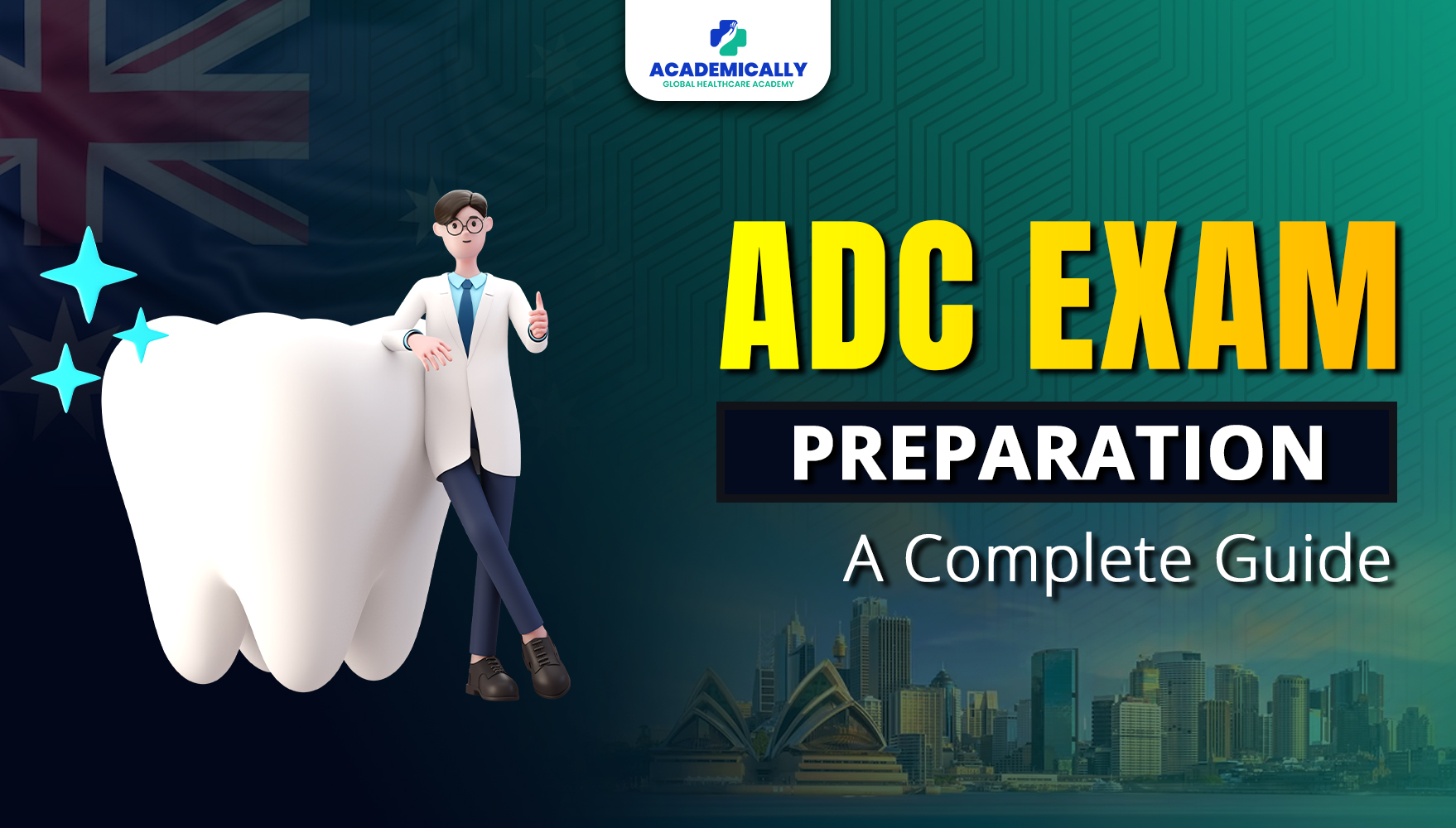Dentistry is often called a “recession-proof career” and you might wonder, really? Where? Because in India, many fresh dental graduates are out there earning just ₹10,000–₹20,000 a month. That’s barely enough to justify the years of study and high tuition fees.
Now, here’s the twist: step outside India, and the story changes completely. In countries like the UK, dentistry is considered one of the most stable and well-paying careers.
Naturally, the first question on your mind is — “How much do dentists earn in the UK, and is it worth the move?”
In this blog, we’ll break down the UK dentist salary scale, compare NHS vs private pay, explore specializations, highlight location-based differences, and discuss future salary trends, with INR conversions so you can clearly see the difference.
Average Dentist Salary in the UK
| Level of Experience | Salary in GBP (£) | Salary in INR (₹) |
| Foundation Year (NHS Training) | £40,776 | ₹42.8 lakh |
| General Dentist (NHS/Private mix) | £60,000 – £84,263 | ₹63 – ₹88.5 lakh |
| Private Sector Dentist | £50,000 – £110,000 | ₹52.5 lakh – ₹1.15 crore |
| Highly Experienced Private Dentist | Up to £140,000 | ₹1.47 crore |
On average, a dentist in the UK earns ₹63 lakh – ₹88 lakh per year, with private dentists often crossing the ₹1 crore.
NHS Dentist Salary
If you choose to work within the NHS (National Health Service), salaries are structured and stable.
| Role | Basic Salary (£) | Salary in INR (₹) | Notes |
| Dental Core Trainee (DCT) | £52,656 – £65,048 | ₹55.2 – ₹68.3 lakh | Paid extra for hours >40/week, nights, weekends, on-call; flexible pay premia for specialty training |
| Dental Specialty Trainee (DST) | £65,048 – £73,992 | ₹68.3 – ₹77.7 lakh | Includes basic pay plus enhancements for training in specialties like oral & maxillofacial |
| Salaried Dentist | £52,532 – £112,360 | ₹55 – ₹1.18 crore | Mainly community dental services; pay depends on experience and location |
| Consultant | £109,725 – £145,478 | ₹1.15 – ₹1.53 crore | Salary depends on seniority; additional awards like Clinical Excellence or Impact Awards |
Dentist Salary by Specialization
Specializing in dentistry pays off, here’s how much different fields earn:
| Specialization | Salary in GBP (£) | Salary in INR (₹) |
| General Dentistry | £60,000 – £80,000 | ₹63 – ₹84 lakh |
| Orthodontics | £70,000 – £100,000 | ₹73.5 lakh – ₹1.05 crore |
| Oral Surgery | £80,000 – £120,000 | ₹84 lakh – ₹1.26 crore |
| Paediatric Dentistry | £60,000 – £90,000 | ₹63 – ₹94.5 lakh |
| Periodontics | £70,000 – £100,000 | ₹73.5 lakh – ₹1.05 crore |
| Prosthodontics | £75,000 – £110,000 | ₹78.7 lakh – ₹1.15 crore |
Oral surgery and orthodontics are the highest-paying dental specialities in the UK. Do you already have the specialisation? Want to know if you are eligible in the UK?
Location-Based Salary Differences
Where you practice also makes a difference:
| Location | Salary (£) | Salary (₹) | Notes |
| London & Southeast England | £70,000 – £90,000 | ₹73.5 – ₹94.5 lakh | Higher pay due to strong demand and cost of living. |
| Northern England & Wales | £60,000 – £80,000 | ₹63 – ₹84 lakh | Competitive salaries with a more affordable lifestyle. |
| Scotland & Northern Ireland | £60,000 – £80,000 | ₹63 – ₹84 lakh | Similar to Northern England, offering good opportunities. |
| Private Clinics in London | £120,000+ | ₹1.26 crore+ | Earnings can be much higher depending on experience and patient base. |
Salary Growth by Experience
Just like in most professions, dentist salaries grow with experience.
| Experience Level | Average Salary in GBP (£) | Salary in INR (₹) |
| 1–3 years | £45,000 | ₹47.2 lakh |
| 5–10 years | £70,000 | ₹73.5 lakh |
| 10+ years | £100,000+ | ₹1.05 crore |
UK vs Other Countries: Dentist Salaries Compared
Now that you know how much you can earn in the UK. Let’s see how the salary compares to other countries:
| Country | Average Salary in GBP (£) | Salary in INR (₹) |
| UK | £60,000 – £84,000 | ₹63 – ₹88.5 lakh |
| USA | £120,000 – £150,000 | ₹1.26 – ₹1.57 crore |
| Canada | £80,000 – £120,000 | ₹84 lakh – ₹1.26 crore |
| Australia | £90,000 – £130,000 | ₹94.5 lakh – ₹1.36 crore |
Pathway to Becoming a Dentist in the UK (for Overseas Dentists)
If you’re an Indian or overseas dentist, you can’t start working with your BDS degree. But you’ll need to:
- Clear the ORE (Overseas Registration Exam), the licensing exam to practice dentistry in the UK.
- Register with the General Dental Council (GDC).
- Apply for jobs in the NHS or private clinics.
Timeline: The whole process may take 1–2 years, but the payoff is a stable, high-paying career.
Pros and Cons of Working as a Dentist in the UK
Pros:
- High salaries compared to India.
- Global recognition of experience.
- Strong demand due to aging population.
- Exposure to advanced technology (digital dentistry, implants).
Cons:
- High cost of living (especially in London).
- Long ORE/LDS exam process.
- NHS workloads can be demanding.
Future Trends in UK Dentist Salaries
The dental profession is evolving — and so are earnings.
- Rising Demand → An aging UK population needs more prosthodontics, implants, and oral care.
- Digital Dentistry → AI, 3D printing & digital scanning bring higher procedure fees.
- Private Practice Boom → Long NHS waiting times push patients toward private care.
- Policy Shifts → NHS reforms could reshape how dentists are paid.
Also Read: Highest paying countries for dentists
Final Thoughts
If you’ve been earning just ₹10,000–₹20,000 a month in India and wondering if dentistry is worth it. Well, you have good news. The UK paints a completely different picture. Here, even general dentists can earn ₹63 lakh – ₹88 lakh annually, and specialists or private practitioners can easily cross the ₹1 crore mark.
But before you can work and earn, you’ll need to clear the ORE or LDS exams and register with the GDC. After that it’s all about opportunities flowing.
So, if you’re ready to take your dental career abroad, this is the time. If you need any help or guidance, experts at Academically are available to help you out 24/7.





